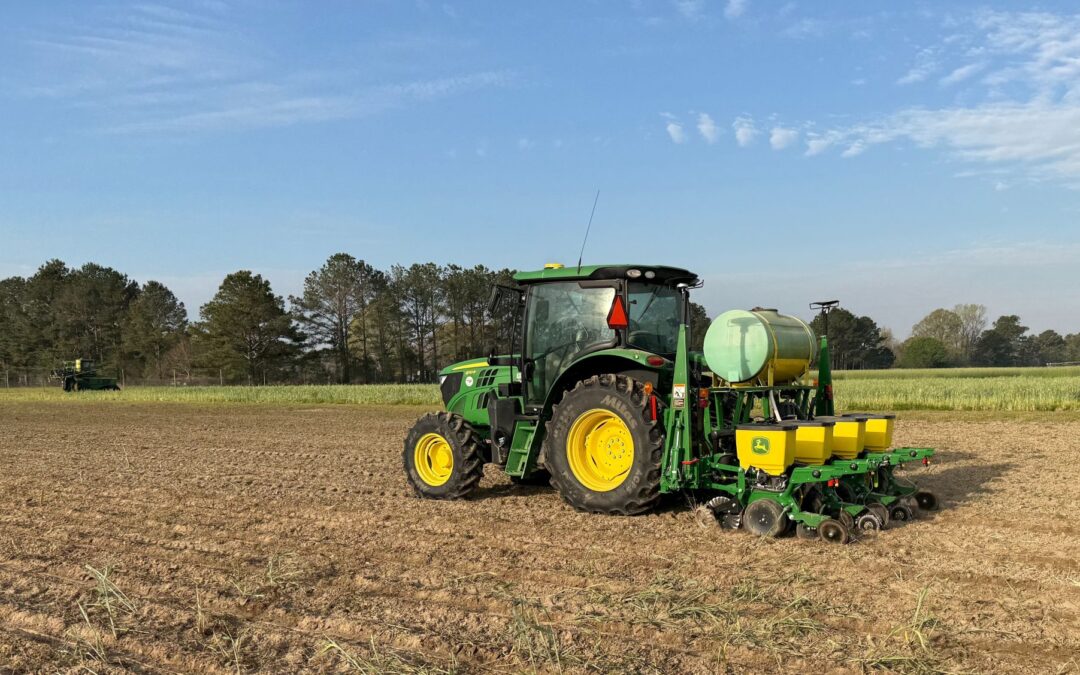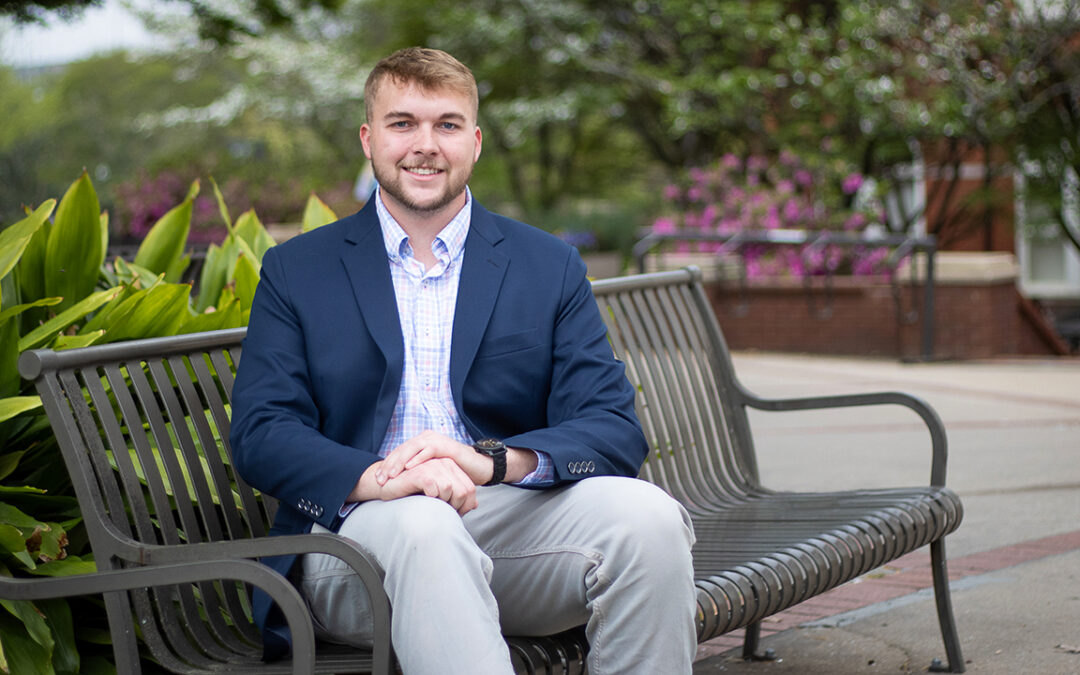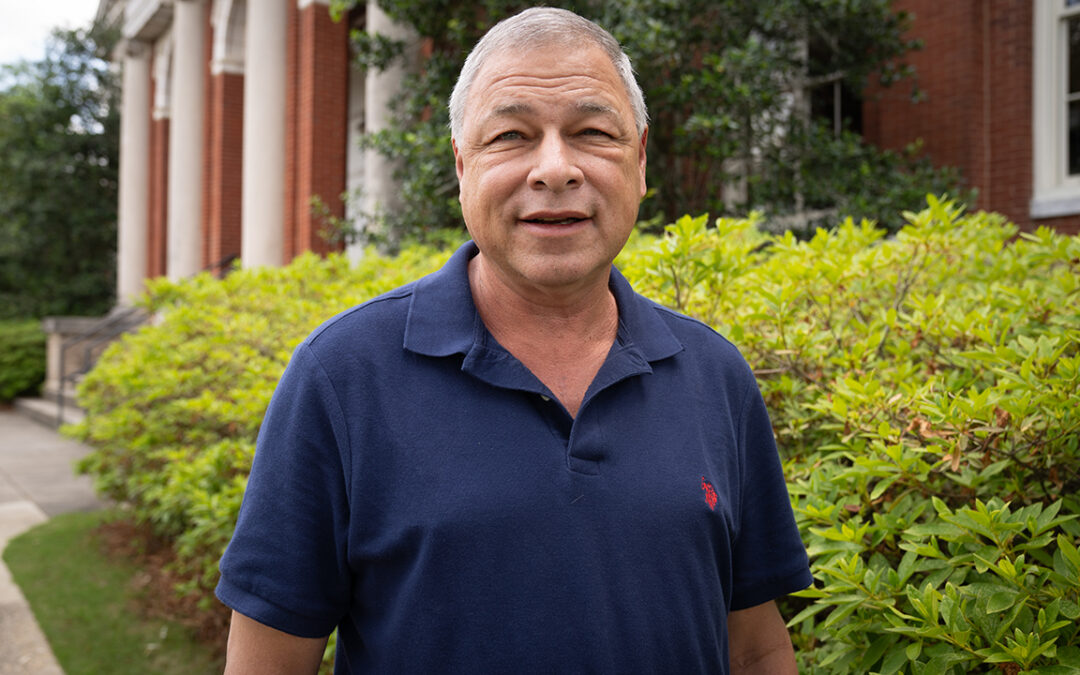
The Tennessee Valley Research and Extension Center in Belle Mina hosted an open house tour on July 19 to help inform state legislators and other leaders in agriculture about projects underway at the center.
by PAUL HOLLIS
The Tennessee Valley Research and Extension Center in Belle Mina hosted an open house tour on July 19 to help inform state legislators and other leaders in agriculture about projects underway at the center. Participants also learned of Alabama Cooperative Extension System efforts to share results of that work with farmers in the region.
There are 15 experiment stations in Alabama, with 90 to 100 experiments taking place at the Belle Mina station alone, said Paul Patterson, dean of the Auburn University College of Agriculture and director of the Alabama Agricultural Experiment Station.
“We often talk about the growing world population and how we’ll have to grow more crops on less land with less water,” Patterson said. “With its plentiful water resources, Alabama has a great opportunity to increase its agricultural production. I am encouraged about the collaboration between all organizations within the state that are involved in agriculture today.”
Four new College of Agriculture faculty members are based? in the state’s research and extension centers, carrying dual research and extension appointments, he said.
Gary Lemme, director of the state’s extension system, told tour attendees that an investment in extension is a good investment of Alabama’s public funds.
“It’s the role of the experiment station and extension to help you be successful,” Lemme said. “The only reason we have extension is for our stakeholders to have a better life, to be more profitable and to enjoy their families and communities more.”
The Tennessee Valley facility—established in 1929—covers 760 acres.
“Our research focus here is row crops and beef cattle,” Chet Norris, TVREC director, said. “Cotton, corn, soybeans and wheat are the major row crops. Our job here is to conduct research, share results, evaluate products and do whatever we can to improve the productivity and efficiency of local growers.”
Area producers rely heavily on the center’s crop variety testing program, he said.
“They want to know which varieties are coming down the pike, and they want an unbiased evaluation of those varieties,” Norris said. “We’re also conducting experiments looking at soil fertility and cropping systems, whether conventional or conservation tillage, and evaluating crop protection materials such as herbicides, fungicides and insecticides.”
In addition, extensive irrigation research is being conducted at the center, Norris said, along with precision agriculture methods, such as the use of yield monitors on cotton pickers and combines, and beef cattle.
“We’ve conducted forage evaluations and looked at steer stocking rates on cool-season or winter annuals,” Norris said. “The center also has worked on the fescue toxicosis issue, in addition to conducting heifer and steer growth implant studies.”
Research projects are initiated by personnel at the center and by on-campus faculty in different disciplines, Norris said.
“They initiate the research, and my staff and I take care of the daily maintenance of the trials,” he said. “We harvest the tests, and I deliver the data to the project leader. From there, research results are released and distributed.”
Between 750 and 775 experiments are conducted at research and Extension centers throughout the state.
State elected officials attending the open house included Sen. Danny Crawford, R-Athens; Sen. Bill Holtzclaw, R-Madison; Rep. Mac McCutcheon, R-Monrovia; Rep. Mike Ball, R-Madison; Rep. Howard Sanderford, R-Madison; and Rep. Anthony Daniels, D-Madison.




